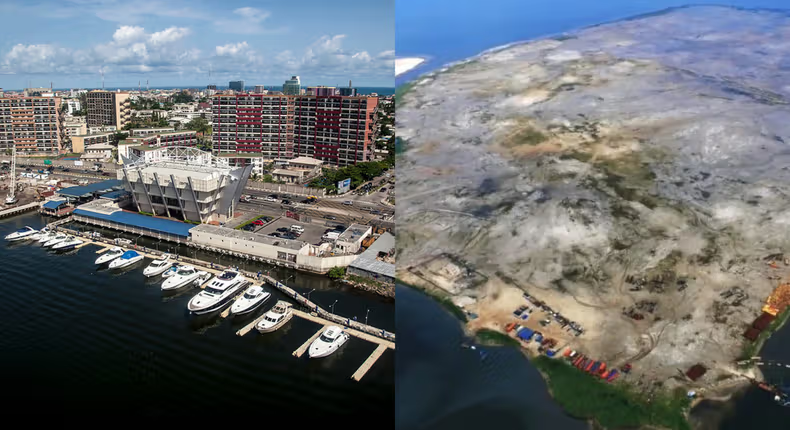The city of Lagos, which spans both the mainland and several islands, is particularly vulnerable to rising sea levels and coastal erosion. As one of the world’s fastest-sinking cities, Lagos faces significant challenges related to climate change and urban development.
Vulnerabilities of Lagos
- Climate Change: Lagos has a low land-to-sea ratio, making it especially susceptible as sea levels continue to rise. The Nigerian Conservation Foundation (NCF) warns that coastal cities less than one meter above sea level could be underwater by 2050 due to ongoing ocean surges. This aligns with projections from United Nations scientists predicting that global sea levels could rise by one meter between 2030 and 2050.
- Poor Drainage Systems: The city’s infrastructure exacerbates its flooding issues. Poor drainage systems and trash-clogged gutters hinder effective water management, worsening flooding during heavy rains. Areas like Victoria Island, which are prone to flooding, suffer greatly due to inadequate drainage solutions.
- Flooding of Sand-Filled Areas: Many parts of Lagos, especially Lagos Island—the major commercial and residential hub—are prone to regular flooding, primarily because they were sand-filled to create land. The development of megacities like Banana Island, Eko Atlantic City, and Lekki disrupts the ecological balance, making these areas even more susceptible to flooding.
Sand has high permeability, meaning it can absorb water quickly; however, it often struggles to manage heavy rainfall or rising water levels effectively. In low-income communities such as Makoko, which are built on reclaimed wetlands, the risk of submersion is even greater due to their inherent vulnerability.
The Need for Effective Flood Management
The confluence of an eroding coastline, inadequate drainage, and the impacts of climate change underscores the urgent need for proper flood management strategies in Lagos. Without significant intervention and improvement in infrastructure, the future of this bustling metropolis could be at severe risk, potentially leading to significant portions of the city being submerged under water.
Lagos’ situation highlights the broader global challenges cities face due to climate change and urbanization, emphasizing the need for innovative solutions and collaborative efforts to safeguard vulnerable urban environments.

